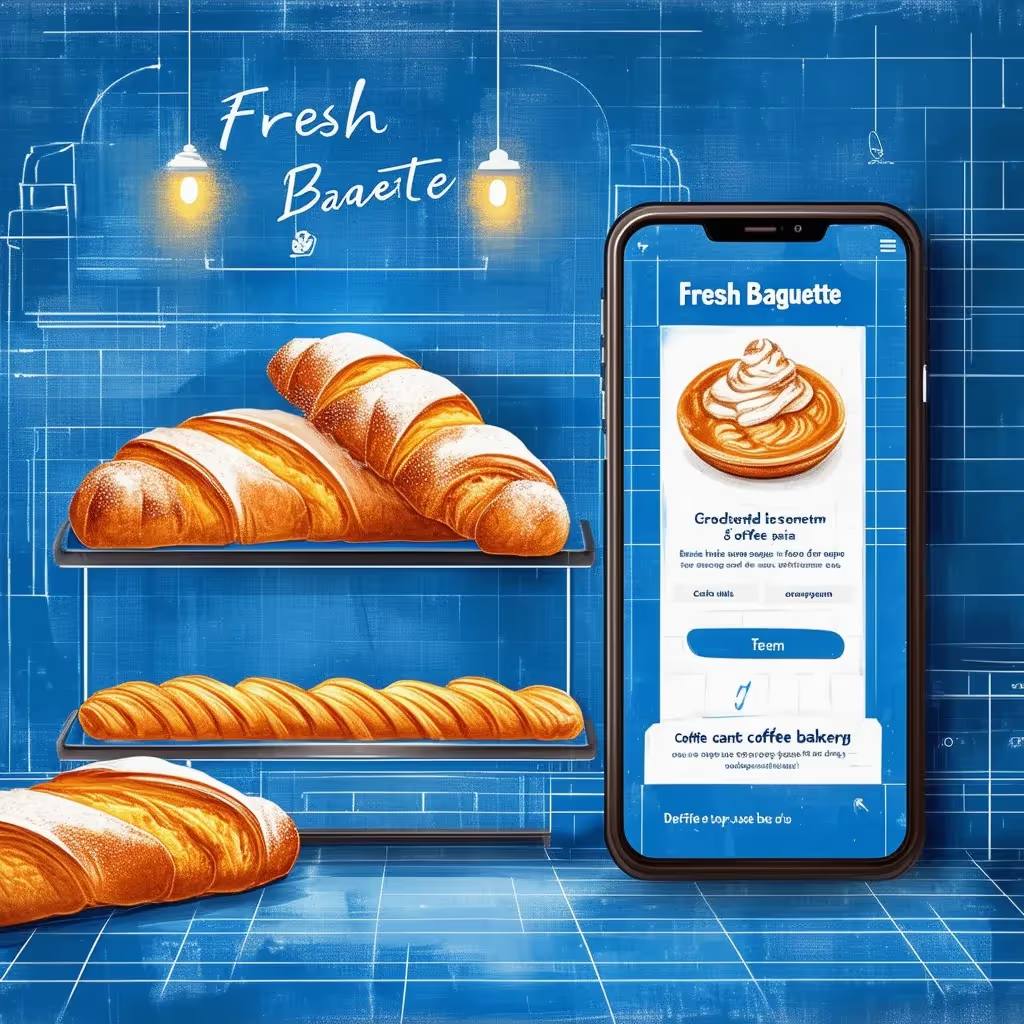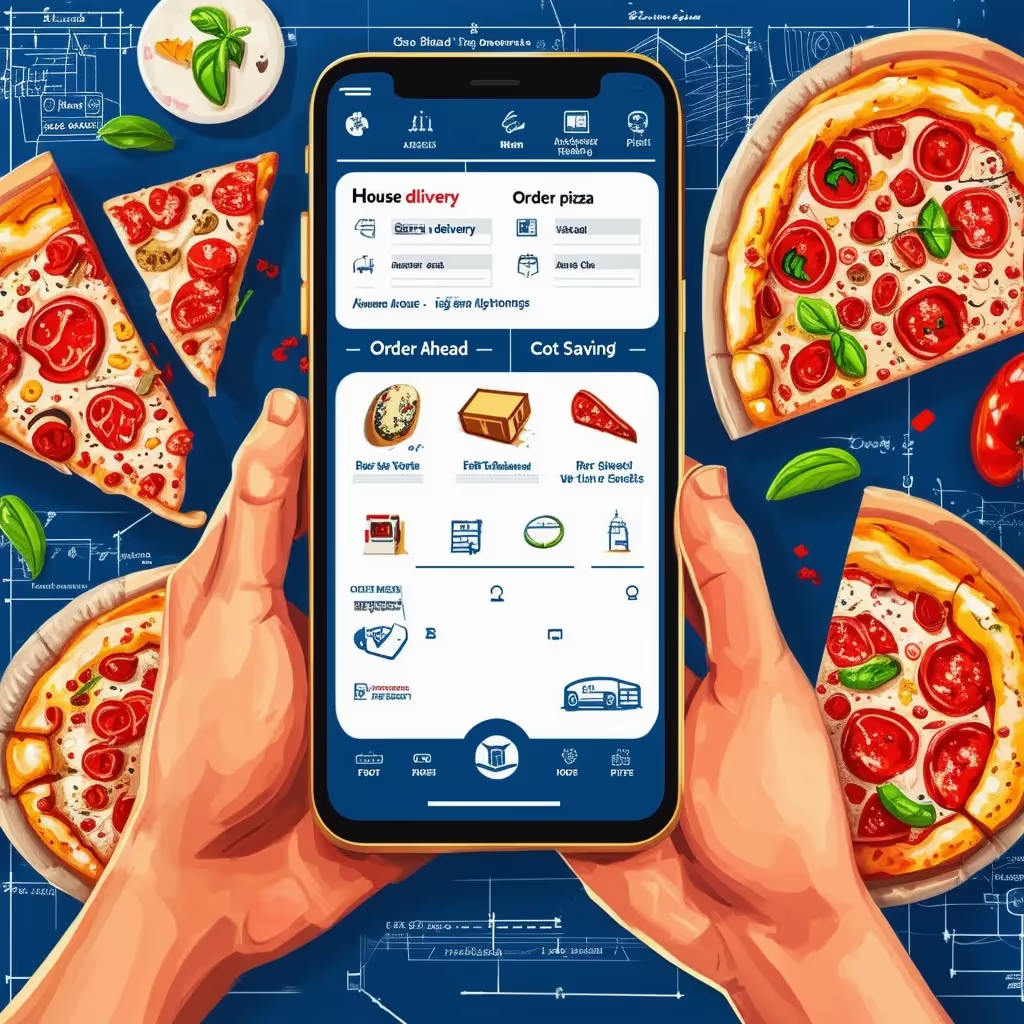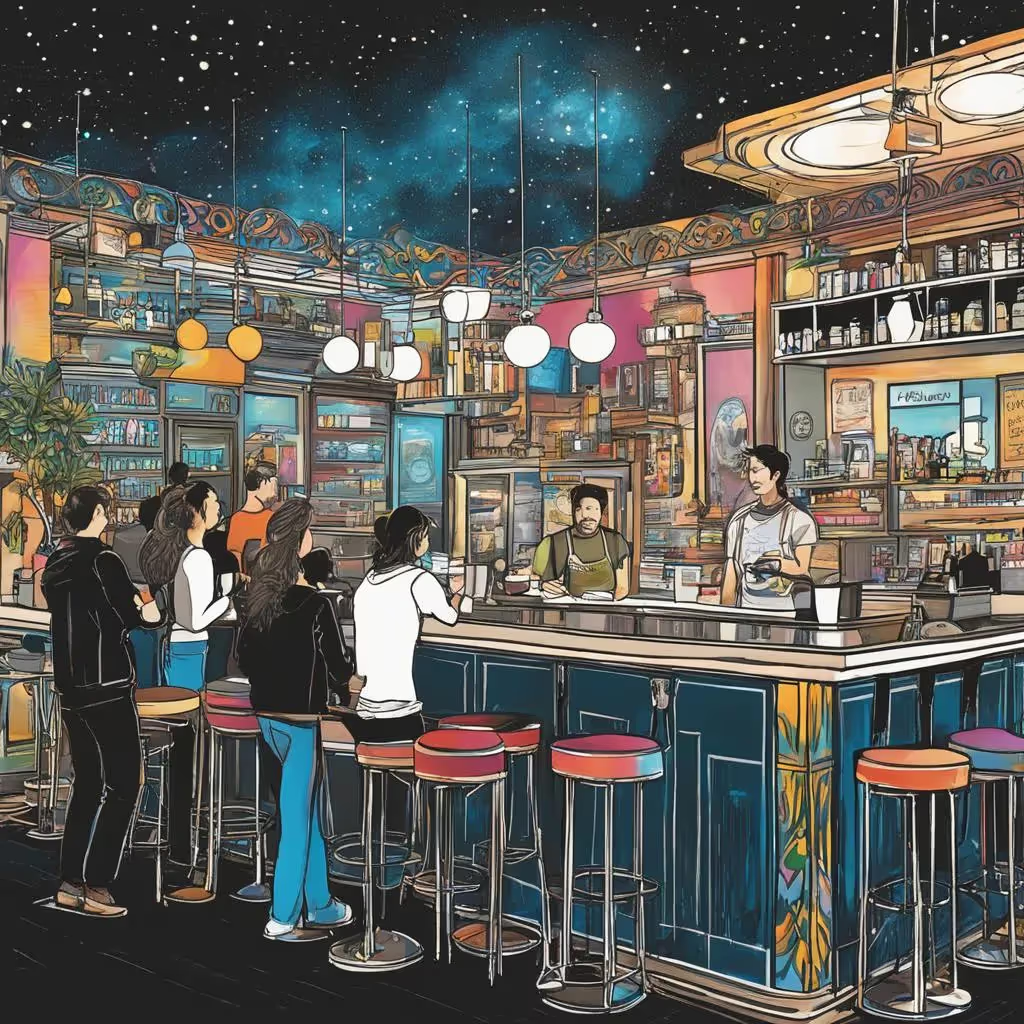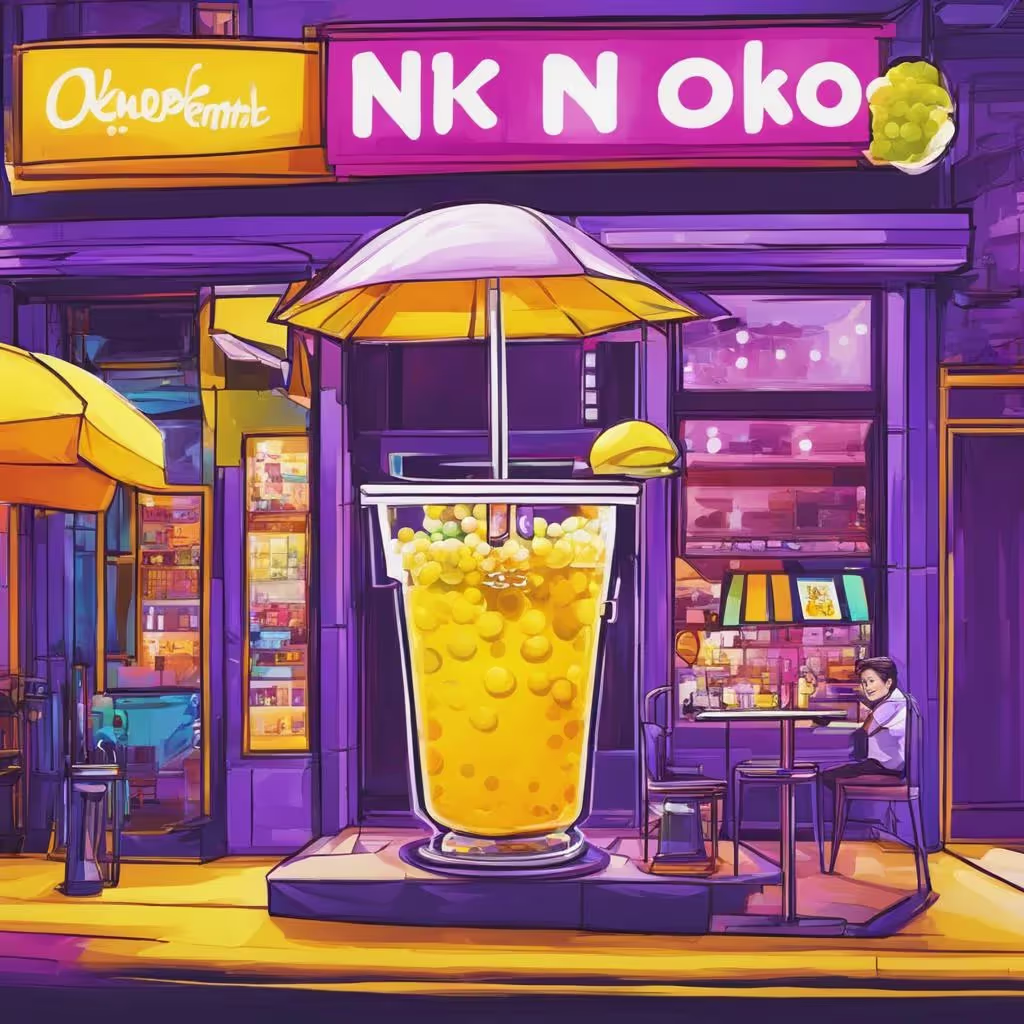TLDR
In the era of the fourth-wave coffee culture, consumers prioritize sustainability when it comes to their coffee choices. As coffee enthusiasts, they look for ethically and organically sourced beans for their daily java fix. Ambee Coffee and Kona Coffee Roasters are two leading brands that chose Per Diem to build their mobile ordering app, setting the standard for sustainable practices. From bean to bag, they ensure quality and minimize environmental impact. Learn their tips on how you can enjoy great-tasting, responsibly sourced coffee.
How Ambee Coffee Sources Sustainable, Organic Beans
Ambee Coffee sources organic, fair-trade beans from around the world to support farmers and ensure top-quality coffee. Their Aurora blend consists of organic whole beans from Honduras, a perfect alternative to Guatemala. Ambee handcrafts USDA-certified organic coffees with sustainability and ethics in mind.
Sustainable and Regenerative Farming Practices
The beans Ambee Coffee uses are grown using sustainable and regenerative farming practices that protect the environment. Farmers use natural methods for controlling pests and weeds, recycling nutrients, and maintaining soil health. These eco-friendly techniques help combat deforestation and climate change.
Fair Prices for Farmers
Ambee Coffee pays fair, above-market prices for beans so farmers can earn a living wage and continue improving their operations. Fair prices also encourage younger generations to stay in the coffee farming business. When farmers prosper, the quality and sustainability of coffee crops benefit.
Freshness and Quality
Ambee Coffee's direct partnerships with farmers mean beans are optimally fresh. Beans are roasted within days of arriving at their New Jersey facility and shipped immediately to customers and coffee shops. The quick turnaround results in an exceptional taste and aroma. Ambee Coffee is passionate about providing a gourmet coffee experience with every cup.
What Makes Ambee Coffee's Process Sustainable
Ambee Coffee sources organic, fair-trade coffee beans and is devoted to sustainable and ethical practices. Their roasting process removes any foreign materials before roasting to provide the purest flavor. Ambee Coffee's coffees are certified organic and locally roasted according to sustainable standards.
Freshly Roasted Beans
Ambee Coffee focuses on freshness by roasting beans in small batches. Roasting in small batches allows them to monitor the roasting process closely and make adjustments to achieve the perfect roast for each varietal. The beans are then packaged and shipped within hours of roasting to ensure maximum freshness. By the time the beans reach customers, they will have been roasted within the past 1-3 days.
Sustainable Sourcing
Ambee Coffee builds direct relationships with coffee farmers to source the highest quality organic beans. They pay fair prices to support the farmers and their communities. Sustainable farming practices like crop diversification, natural pest control, and water conservation are supported.
Certified Organic
All Ambee Coffee beans are certified organic according to USDA standards. No synthetic pesticides, herbicides, or fertilizers are used in growing or processing the beans. Organic certification promotes biodiversity and healthier ecosystems. Choosing organic coffee is better for the environment and supports sustainable agricultural practices.
Compostable Material
Ambee Coffee strives to minimize its environmental impact through the materials it chooses. All of their single-use items from utensils to coffee cup lids are made from compostable materials. Its compostable coffee cups are made from plant-based materials like sugarcane, bamboo, and wood pulp. These paper cups are fully biodegradable and compostable. After use, customers can dispose of the cups in compost bins instead of landfills.
By focusing on sustainability from crop to cup, Ambee Coffee provides an organic coffee experience customers can feel good about. From the source to the final sip, sustainability is brewed into every step of their process. Other coffee roasters would do well to follow Ambee Coffee’s sustainable model.

How Other Coffee Shops Can Follow Ambee's Lead
Source High-Quality, Organic Beans
To improve sustainability, coffee shops should source beans from organic, fair-trade farms. Like Ambee Coffee, look for farms that prioritize sustainable growing practices and fair wages for farmers. Smaller farms that handpick and sun-dry beans tend to be more eco-friendly. Kona Coffee Roasters, for example, sources 100% Kona coffee grown in Hawaii using traditional methods.
Offer Reusable Cup Discounts
Coffee shops produce millions of disposable cups each year that end up in landfills. Following Ambee's model, shops can incentivize customers to use reusable mugs by offering discounts of up to 50 cents per drink. This significantly cuts down on waste while also building loyalty. Some cafes have started charging extra for disposable cups to further discourage their use.
Reduce Energy and Water Usage
There are many ways for coffee shops to decrease their environmental footprint. Using Energy Star-certified equipment, LED lighting, and automatic light sensors can lower energy usage. Installing low-flow faucets and serving water only upon request reduces excess water consumption. Composting coffee grounds and food waste, as Ambee Coffee does, keeps them out of landfills.
Spread Awareness about Sustainability
To catalyze real change, coffee shops should educate customers about sustainability. They can promote initiatives on social media, their website, and in-store. Ambee Coffee spotlights its sustainable practices and organic, fair-trade beans to raise awareness. Cafes might also host events centered around sustainability or donate a portion of proceeds to eco-friendly nonprofits. The more customers support and spread the message, the bigger the impact it can have.
Kona Coffee Roasters: Brewing Up Sustainability in NYC
Sustainable Sourcing
Kona Coffee Roasters is committed to sustainable business practices, starting with how they source their coffee beans. They work directly with coffee farmers in Hawaii to source 100% Kona coffee, enabling farmers to earn a fair price for their crops. This direct trade relationship also allows Kona Coffee Roasters to foster long-term sustainability by helping farmers continually improve growing and processing methods.
Eco-Friendly Packaging
In addition to sustainable sourcing, Kona Coffee Roasters uses recyclable and compostable packaging for their coffee. The retail bags are made from unbleached paper and are fully compostable. The single-serve pods are made of plant-based materials and are both recyclable and compostable. Using sustainable packaging helps reduce waste and Kona Coffee Roasters’ environmental impact.
Through mindful sourcing, eco-friendly operations, and community partnerships, Kona Coffee Roasters demonstrates a dedication to sustainability that extends well beyond their coffee. By valuing sustainability and giving back to the community, Kona Coffee Roasters brews up more than just a good cup of coffee.
Promoting Sustainability in the Coffee Industry
To build a sustainable future for coffee, companies must invest in environmentally-friendly practices. Ambee Coffee sources 100% organic, fair trade beans and gives incentives on programs like "bring your own cup". Their sustainability efforts should serve as a model for other coffee brands.
Ethical Sourcing
Ambee and Kona ethically source all of their beans directly from farmers, paying fair prices that enable living wages and decent working conditions. They have long-term relationships with farm cooperatives that grow beans using organic and shade-grown methods. These practices help protect biodiversity and natural resources. Other coffee companies should follow their lead, building direct trade partnerships with farmers and paying prices that reflect the true cost of sustainable production.
Reducing Environmental Impact
From crop to cup, Ambee Coffee aims to minimize its environmental footprint. They only work with farms that avoid synthetic pesticides and fertilizers which can pollute the air, water, and soil. Ambee also invests in eco-friendly operations, using compostable cups and sleeves, and recycling coffee grounds into fertilizer. To shrink their carbon footprint further, they offset staff travel emissions and source renewable energy for their roastery. These types of environmental initiatives should be implemented industry-wide to create a greener future for coffee.
Overall, the sustainable and ethical practices of Ambee Coffee And Kona Coffee Roasters should motivate other coffee companies to reexamine their business models. By embracing principles of environmental stewardship, fair trade, and social responsibility, the coffee industry can work to secure a sustainable future for itself and the communities it impacts. Together, coffee brands have the power to drive real and lasting change.
Final Thoughts
Take the First Step Towards a Sustainable Coffee Shop
The path toward sustainability may seem daunting, but small steps can make a big difference. Look to companies like Ambee Coffee and Kona Coffee Roasters as examples of sourcing organic, ethical beans and promoting eco-friendly practices. Start by reviewing your supply chain and minimizing waste. Educate your staff on sustainability and engage customers in the effort. With persistence and creativity, your coffee shop can brew up positive change. Though the road is long, the first steps are often the most important.


.webp)


.webp)
.png)
.webp)


.avif)
.webp)
.webp)
.webp)

.webp)










.png)
.png)







.svg)





.svg)
.svg)






.avif)



.avif)
.avif)
















.avif)








.avif)










